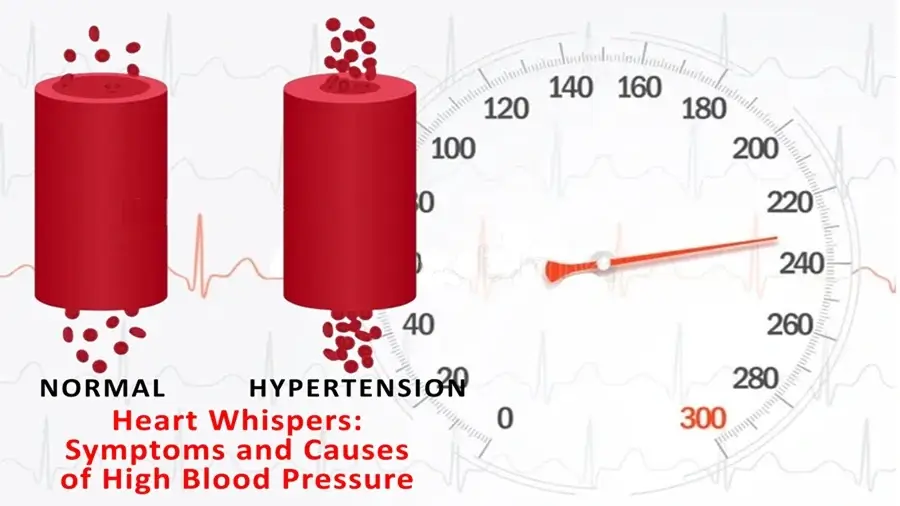
What is the Heart Attack Treatment (Myocardial Infarction)?
Before talking about Heart Attack Treatment, it is important to understand that when a part of the heart gets blocked, it can cause a heart attack. It’s very important to get help quickly. Taking care of the heart during a heart attack means acting fast and doing things to help it get better. A heart attack is a serious problem, so we need to understand how Heart Attack Treatment can be administered for its complete recovery. People and those who take care of them must learn about heart attack treatment to keep the heart healthy and the person feeling good.
Immediate Care:
- Emergency Medical Services (EMS): Immediately call emergency services when symptoms begin, as paramedics can provide life-saving interventions en route to the hospital.
- Aspirin: Chew or take aspirin as soon as symptoms begin to thin the blood and improve blood flow. However, it’s essential to consult with a healthcare professional before taking aspirin, especially for allergies or other medical conditions.
Medications:
- Thrombolytics (Clot-busting drugs): Administer these medications in the early stages of a heart attack to dissolve blood clots and restore blood flow to the heart.
- Antiplatelet drugs: Prescribe medications such as clopidogrel or ticagrelor to prevent the formation of new blood clots.
- Beta-blockers: Prescribe these drugs to reduce the workload on the heart and prevent further damage.
Invasive Procedures:
- Coronary Angioplasty and Stenting: Doctors use a special tube with a balloon at the end to open blocked blood vessels in your heart. They put the tube through the vessels and inflate the balloon to make the vessel wider. Then, they put a tiny tube called a stent to keep the vessel open.
- Coronary Artery Bypass Grafting (CABG): If a lot of tubes in your heart are blocked, or if the first procedure isn’t possible, doctors might suggest surgery. They take some blood tubes from other parts of your body and use them to create new paths for the blood to flow around the blocked parts of your heart. This helps the blood reach your heart better.
Cardiac Rehabilitation after Heart Attack Treatment:
- Rehabilitation programs: After a heart attack, people usually join special programs to help them get better. In these programs, they do exercises, learn about keeping their heart healthy, and talk to someone for support. This helps them recover and lowers the chance of having another heart problem.
Medications for Long-term Management:
- Statins: Prescribe these drugs to lower cholesterol levels and reduce the risk of future cardiovascular events.
- Angiotensin-converting enzyme (ACE) inhibitors or Angiotensin II receptor blockers (ARBs): Prescribe these medications to lower blood pressure and reduce strain on the heart.
Lifestyle Changes after Heart Attack Treatment:
- Healthy Diet: Adopt a heart-healthy diet, low in saturated fats, cholesterol, and sodium.
- Regular Exercise: Engage in regular physical activity to improve cardiovascular health.
- Smoking Cessation: Quit smoking to reduce the risk of further heart problems.
- Stress Management: Manage stress through relaxation techniques or counseling, which can be beneficial.
It’s not just about making the body better—helping the heart also means taking care of feelings. Talking to doctors, joining groups, and doing activities can make the heart and the person feel better. Even though getting better might seem hard, every step is like moving toward a healthier heart and a healthier you. Remember, everyone is different, so talking to doctors is important. They will make sure the heart stays healthy and strong.

Is It Possible to Recover Completely from a Myocardial Infarction?
Many people can fully recover from a heart attack, or myocardial infarction, especially with early treatment and depending on the extent of heart damage. Recovering completely from a heart attack involves various factors. The factors include the severity of the heart attack, promptness of medical intervention, and the individual’s overall health. A complete recovery is often achievable. However, it’s essential to understand that the term “complete recovery” can vary from person to person. It may not necessarily mean the heart returns to its pre-heart attack state.
Here are some important factors in getting better after a heart attack treatment:
How Bad the Heart Attack Was?
The extent of damage to the heart muscle during a heart attack significantly influences the potential for complete recovery. Smaller heart attacks may result in less damage and a higher likelihood of complete recovery.
Getting Help Fast:
When someone has a heart attack, it’s really important to get help quickly. Doctors give special medicines and do procedures to help the heart. Doing this fast can make sure the heart is not hurt too much. It helps the person feel better and have a stronger heart.
Medical Procedures and Interventions:
Sometimes, doctors need to do special procedures to help the blood flow to the heart. They might use a balloon and a tiny tube, or they might take a small tube from somewhere else in the body to make a new path for the blood. These procedures can make someone feel better and help their heart get stronger. But the way the doctor does it depends on how the person is feeling and how bad the blockages are.
Cardiac Rehabilitation after Heart Attack Treatment:
After a heart attack, doing exercises and learning about healthy habits can help the heart a lot. This is called cardiac rehabilitation. Cardiac rehabilitation programs play a big role in helping people get better. They include doing exercises, learning about how to keep the heart healthy, and getting support for feelings. Joining these programs helps people make their hearts stronger and lowers the chance of having more heart problems.
Lifestyle Changes after Heart Attack Treatment:
Taking care of your heart is an important part of getting better. This means eating healthy foods, doing exercises, not smoking, and finding ways to relax. Doing these things can make your heart work better, and you will feel better overall.
Eating Healthy and Moving Around:
Eating good foods and moving around are important for a healthy heart. It’s also good to quit smoking and find ways to relax.
Taking Medicines as part of Heart Attack Treatment:
Sometimes, doctors give special medicines to keep the heart healthy. It’s important to take them exactly how the doctor says.
Ongoing Monitoring and Follow-Up:
Going to see the doctor regularly is really important to check how your heart is doing and talk about any worries. Sometimes, the doctor might do special tests, like taking pictures of your heart or having you run on a machine, to see how well your heart is working.
Checking with the Doctor Often:
Visiting the doctor regularly helps keep track of how the heart is doing. They might do some tests to make sure everything is okay.
Emotional Counseling after Heart Attack Treatment:
Emotional counseling is another important part of this recovery process, helping you deal with the psychological challenges that can come with a heart attack.
People are Different:
The extent of recovery varies among individuals. Each person is unique, so the way someone improves can also differ. Moreover, some individuals may attain a high level of function with minimal long-term effects, while others may encounter ongoing challenges. As a result, navigating the recovery process becomes a unique journey for each person, and healthcare professionals play a crucial role in providing support. Additionally, doctors assist each individual in determining the best plan for their heart.
Through the above-mentioned comprehensive approach, many individuals not only survive but thrive after a heart attack. They reclaim their lives and return to their normal activities. It’s a journey with its challenges, but with the right support, guidance, and personal determination, a full recovery is not just possible—it’s likely.
Remember, taking care of the heart is a team effort. Doctors and others will help to make sure the heart stays strong and healthy. Those who have experienced a heart attack should work closely with their healthcare team to create a personalized recovery plan. Adhering to medical advice, making necessary lifestyle changes, and maintaining regular follow-up appointments can contribute to a better quality of life and improved heart health over time.

Can myocardial infarction lead to cardiovascular disease?
A heart attack happens when part of the heart doesn’t get enough blood. This can cause problems like irregular heartbeats or heart failure. It also hurts the heart. Even though one heart attack is serious, it can make a person more likely to have ongoing heart problems called cardiovascular disease. After a heart attack, the healing can make a kind of tough tissue in the heart, which can make it work not as well. People who had a heart attack are at more risk of having more heart problems. This includes more heart attacks and other things that make the heart not work so well.
Here’s how myocardial infarction can be linked to cardiovascular disease:
Underlying Causes:
Sometimes, there can be a problem in the heart called atherosclerosis. This happens when fatty stuff builds up in the heart’s tubes, making them narrow. This can lead to a heart attack because it blocks the blood from getting through. Atherosclerosis is a big part of heart problems, and a heart attack is one of the serious things that can happen because of it.
Impact on Heart Function:
A heart attack can make the heart muscle weak and not work as well. This happens because the heart has some hurt or scarred parts from the heart attack. When the heart doesn’t work well, it can lead to heart problems, like something called heart failure, which happens over time.
Risk of Recurrent Events:
If someone had a heart attack before, they might have another one because some things that caused the first one can keep getting worse. These things, like the fatty stuff in the heart tubes, can affect other parts of the heart and cause more heart attacks. Having more heart attacks makes heart problems, like something called cardiovascular disease, more likely.
Systemic Effects:
When someone has a heart attack, it doesn’t just affect the heart; it can also affect the blood vessels in the whole body. This can lead to other problems like peripheral artery disease (PAD), which is a kind of heart problem that affects the blood vessels outside the heart and brain.
Changes in Blood Vessels:
The problem called atherosclerosis which can cause a heart attack doesn’t only happen in the heart. It can also make the tubes that carry blood in the whole body narrow and hard. This might lead to another problem called high blood pressure and add to the heart problems someone might have.
Impact on Lifestyle after Heart Attack Treatment:
When someone has a heart attack, it can be a sign that they need to change some things in their life. But if they don’t stop doing things that are not good for the heart, like eating unhealthy food, not moving around enough, or smoking, it can make heart problems get worse. So, changing how you live is really important to keep your heart healthy.
Chronic Inflammation:
When someone has a heart attack, it can make their body a bit angry, causing something called inflammation. This can be a problem because it might make heart issues get worse. The angry feeling in the body, called inflammation, can keep hurting the tubes that carry blood and the heart. This might lead to more heart problems, like something called cardiovascular disease.
Importance of care after Heart Attack Treatment:
After someone has a heart attack, they need to get special care. This means taking medicines, changing the way they live, and joining programs to help their heart get stronger. Going to see the doctor regularly is also important to check their heart and lower the chances of having more heart problems.
It is important to understand how a heart attack can lead to heart problems (cardiovascular disease). A heart attack is a big event that can cause immediate issues and also make heart problems happen later on. The impact of a heart attack goes beyond just when it happens; it can affect how the heart works and make it more likely for other heart problems to occur again.
Taking care of the heart after a heart attack and making healthy choices can help prevent more heart issues. Regular check-ups and listening to the doctor’s advice are important to keep the heart healthy. So, by taking good care of the heart, people can have a better life and reduce the chances of having more heart problems.

What is the role of cardiology in treating myocardial infarction?
In treating heart attacks, also known as myocardial infarction, cardiology, a specialized field in medicine, plays a crucial role. Moreover, doctors, known as cardiologists, possessing expertise in managing cardiovascular diseases, become vital in caring for individuals experiencing heart attacks. Upon identifying a heart attack, cardiologists actively collaborate with other healthcare professionals to develop a personalized heart attack treatment plan.
Additionally, they may recommend procedures such as coronary angioplasty and stent placement to open blocked arteries, thereby restoring blood flow to the heart. In severe cases, consideration may be given to cardiac surgery, like coronary artery bypass grafting (CABG). Cardiology ensures that individuals receive complete and personalized care for both the immediate and long-term aspects of heart health.
Here are the key aspects and the role of cardiology in treating heart attacks:
Diagnosis and Early Intervention:
Heart doctors, called cardiologists, use special tools to find out if someone has a heart attack. These tools include things like pictures of the heart, a test called an electrocardiogram (ECG or EKG), and checking the blood. When they know someone has a heart attack, they quickly do things to help them get better.
Emergency Medical Care:
When someone has a big problem with their heart, doctors call cardiologists to work with special emergency teams to help them right away. They give the person medicines to make the blood flow better and provide oxygen to help them breathe. This helps the person stay stable until the doctors can do more to help them.
Reperfusion Therapy:
Cardiologists do special things to help the blood flow better in the heart. They might use a tiny tube or do surgery to make sure the blood can reach the hurt part of the heart. Percutaneous Coronary Intervention (PCI) and Coronary Artery bypass grafting (CABG) are a few examples of the procedures the cardiologists do. How they do it depends on where and how bad the blockages are.
Medication Management:
Cardiologists, give special medicines to help people who had a heart attack. These medicines usually are the pills that prevent heart problems, make the heart work better, and lower the chance of more heart issues. Antiplatelet agents, beta-blockers, angiotensin-converting enzyme (ACE) inhibitors, and statins are a few examples.
Cardiac Rehabilitation after Heart Attack Treatment:
Heart doctors, called cardiologists, suggest special programs to help people get better after a heart attack. In these programs, they do exercises, learn about living healthily, and talk to someone for support. This helps them make their heart stronger and feel better overall.
Risk Factor Management:
Heart doctors (Cardiologists) help people avoid having heart problems by talking about how they live. They give advice about eating healthy food, moving around more, stopping smoking, and finding ways to relax. This helps each person make their heart healthier by doing good things for it.
Long-Term Follow-Up and Monitoring after Heart Attack Treatment:
Heart doctors, called cardiologists, always check how someone’s heart is doing even after they feel better. They do this with regular visits, special tests, and changing the medicines if needed. The aim is to stop more heart problems and keep the heart healthy for a long time.
Patient Education and Support:
Heart doctors, called cardiologists, teach people about their heart problems, how they can get better, and why it’s important to live in a healthy way. They also help answer questions and make sure each person knows how to take care of their heart. This way, people can be part of making their hearts strong and healthy.
Heart doctors, called cardiologists, play a big role in helping people with heart attacks. They help by figuring out what’s wrong and making a plan for each person. They might do special procedures or even surgery for serious cases. These heart experts not only help right away but also take care of people’s hearts for a long time. Working together with other healthcare professionals, they make sure everyone gets the right care to feel better after a heart attack.

